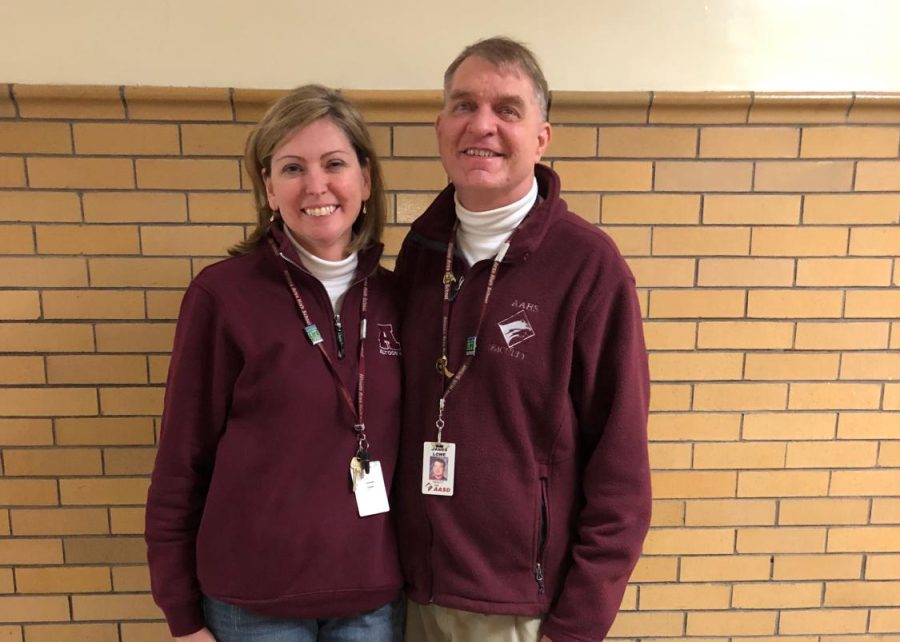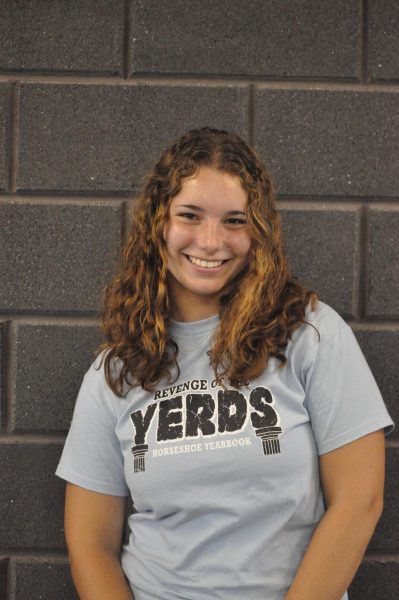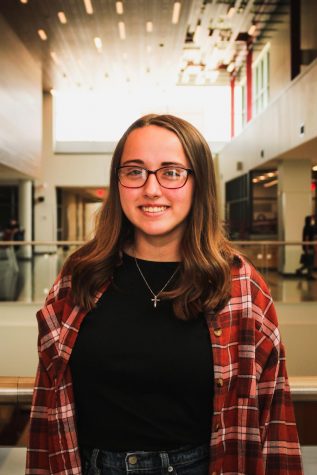Students, staff explain importance of Donor Day
Love to help. Jennifer Lowe and Jim Lowe have first hand experience with organ donation. Mr. Lowe needed an organ transplant and his wife signed up for live organ donation.
January 24, 2022
Pennsylvania Donor Day is held on Jan. 8 (1/8) because one donor can save eight lives. Some students and staff in the district decided to participate in Donor Day for a variety of reasons.
The high school became involved in Donor Day three years ago when retired physical education teacher Mark Sapita received a grant to give prizes to students who are organ donors.
“On our end, we receive a grant. This is the third year then we will have one more and the job is to get the word out to the student population that first off the program exists, what it’s about and it’s up to them if they want to put that designation on their drivers license or permit. It’s a statewide effort. Think about how many people could’ve been saved if people knew to sign up for it,” physical education teacher Tom Palfey said.
The physical education and health department have activities and opportunities to give to students through the program.
“There is another one [Donor Day] coming up in the spring that is the month of it, and we will put a table on the bridge. It will have the flag and the information that if you are a donor and haven’t been put up on the T.V. already, we will give you lanyards and things like that. Our health teachers have a guest speaker in. There is a program where if you are in the science field, we will have a doctor that will show you a corpse with body systems. We can take a bus full of people over to the organ donation center where they have what I didn’t know but an eye bank of the lenses and like a refrigerator and stuff but all pretty interesting stuff that I didn’t even know about,” Palfey said.
Donor day is very important to history teacher James Lowe. Lowe underwent two transplants to keep him alive. He is involved in Donor Day at the Altoona Hospital and the Transplantation Hospital in Pittsburgh.
“The only way to truly help these people is by becoming organ donors. The other is the live donation program, which my wife did. If it wasn’t for my wife, who donated a kidney to keep me alive, I would not be here today. The cadaver donor program, which is what I was part of in 1997, gave me both a kidney and a pancreas which allowed me to remain healthy for the last 25 years,” Lowe said.
According to Lowe, there are a lot of “urban legends” about organ donation.
“There are a lot of urban legends out there about people having their organs stolen, and if you’re an organ donor the hospital won’t treat you properly because they want your organs. Those are all false. A doctor’s primary goal is to save a life and they’re not going to sacrifice one person to help another,” Lowe said.
Many students in the school who have their license already signed up to be an organ donor.
“I signed up to be an organ donor because I felt it was my part to give back to society if I was deceased. I wanted to be a good person and do a good deed,” senior Rachel Scheinberg said.
Anyone can become an organ donor by signing up on their driver’s license.
“Donor day is important to increase awareness for the idea of organ donation. There are thousands of people who die every year waiting for a transplant who don’t get them. We have a lack of awareness that organ donation is something you can do by simply signing up when you get your driver’s license. Every major religion supports organ donation. Obviously you can’t take the organs with you when you leave, although there is something called live organ donation which you can do for livers and kidneys. For the most part, it is based on people donating their organs when they are no longer with us,” Lowe said.








![Inspiration. Ten years ago, Price and Saboe found a way to memorialize Dodson and her impact in the volleyball program. The Erin Dodson Memorial volleyball games highlight Dodson's determination and positivity, even in the face of obstacles. "[We wanted] to be able to give to others based on the legacy that Erin had created as a person," Saboe said. "[We] thought honoring her like this would be the best way that we can honor her."](https://aahsmountainecho.com/wp-content/uploads/2025/10/IMG_1319-1-e1759443066570-300x165.jpg)
